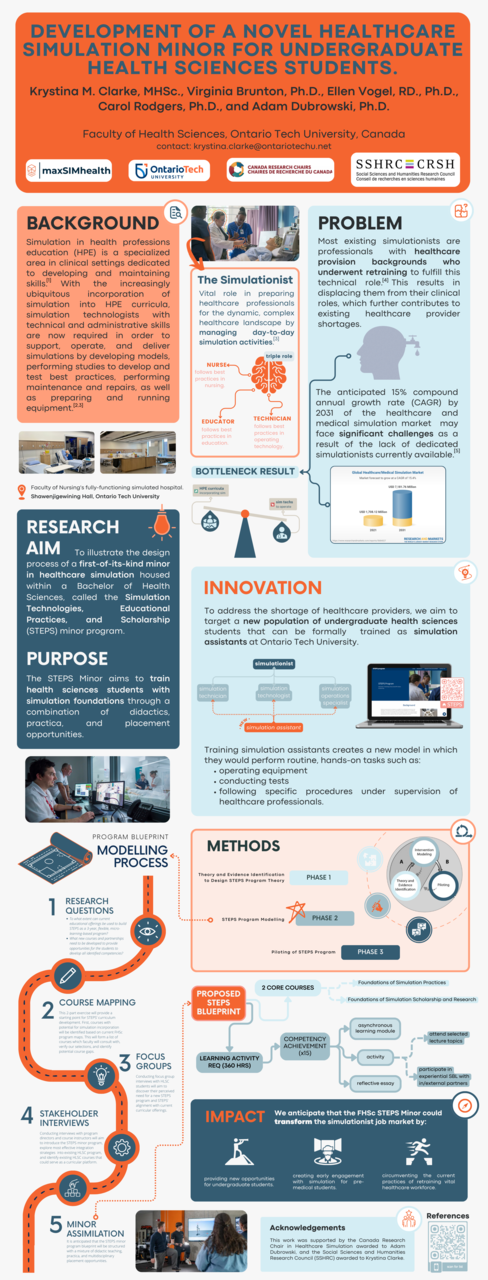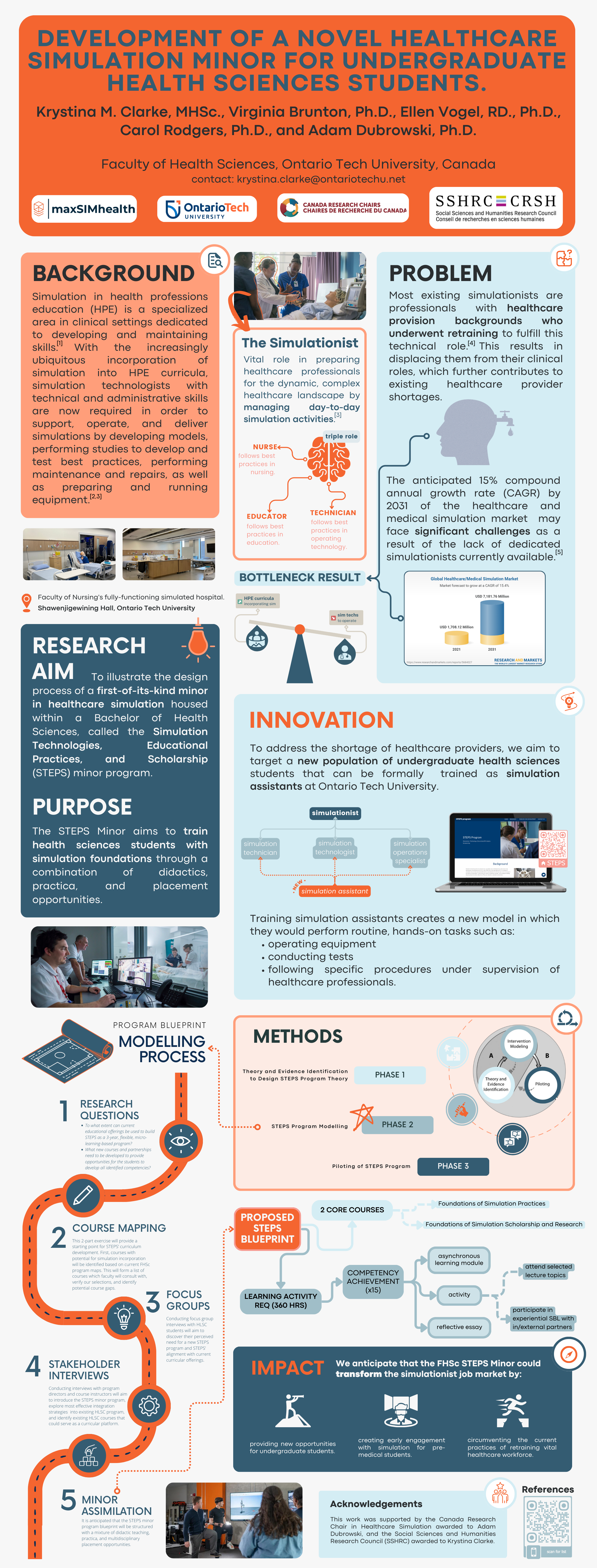Abstract
Background/rationale/context: Simulation in health professions education (HPE) is a specialized area in clinical settings dedicated to developing and maintaining skills. With the increasingly ubiquitous incorporation of simulation into HPE curricula, simulation technologists with technical and administrative skills are now required in order to support, operate, and deliver simulations by developing models, performing studies to develop and test best practices, performing maintenance and repairs, as well as preparing and running equipment. However, the future growth of the healthcare simulation market may face significant challenges because of the lack of dedicated simulation operations specialists presently available. To date, existing simulation technologists are healthcare providers who undergo retraining, which displaces them from their clinical roles. In the context of massive health provider shortages invoked by the COVID-19 pandemic, this issue must be addressed using out-of-the-box solutions to avoid its exacerbation.
Objective: The overarching goal is to illustrate the design process of a first-of-its-kind minor in healthcare simulation program housed within a Bachelor of Health Sciences (BHSc), called the Simulation Technologies, Educational Practices, and Scholarship (STEPS) minor program. STEPS aims to train health sciences students with simulation foundations through a combination of didactics, practica, and placement opportunities.
Description of innovation: STEPS is currently being constructed with a projected enrollment in the fall semester of 2025. It is positioned to be a secondary specialization pathway within a BHSc degree and is based on four core and 10 elective courses. In addition, through the four years, learners must complete 36 hours of practicum within our partner simulation labs, engage in scholarship, and enroll in a residency program in collaboration with local healthcare institution partners. The design of STEPS was informed by the Adapted Medical Research Council Framework and implementation science, while its program theory is based on principles of infusion, spiral curricula, and gamification.
Impact: It is anticipated that STEPS could have a transformational effect on the simulation technologist job market by (1) providing new opportunities for undergraduate students; (2) creating early engagement with simulation for pre-medical students; and most importantly, (3) circumventing the current practices of retraining vital healthcare workforce.






